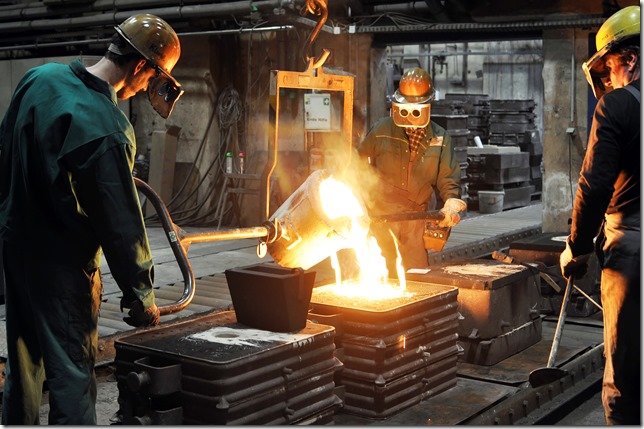While his name is not known to most people, his impact on the 20th century was quite profound. He is Frederick Winslow Taylor, a management theorist that focus on the labor process. He is the backbone of today’s management by the use of science. His works started blooming in an era after companies have become more than a mere limited project, but unlimited by the boundary of time and that in this time, industrialization is on the move.
Companies were growing in scope and racing to reap the benefits of industrialization. They were so starving in harvesting benefits of industrialization. In that time, companies need much more labor than ever to be able to produce products that made possible by the industrialization.However, even labor is many, a fundamental problem is emerging that needs an answer, how do we get labor to work more to ensure maximum output?
His works begin with many writings in the theory of work that mainly focusing on finding the way of controlling the motion of workers to obtain highest maximum output for what company pay for wages.
Even all that he has created is not fully acceptable in todays modern era but many of his concepts become a root for current management practice. His controversial concept such as the concept of soldiering that workers didn’t work hard enough is totally rejected by lean thinking that fundamentally held a strong believe that worker is good and therefore most of error come from engineer or the architect of the system that most of the time have to put to blame.
Soldiering held a believe that in a majority of cases the man deliberately plant to do as little as he possibly can to turn out far less work than he is well able to do in may instances to do not more than 1/3 or 1/2 of a proper day’s work. ~ Taylor
Proper day’s work is a maximum level of output humanly possible or a fair day’s work. when worker is not physically possible to reach this, he fired them. He argued that soldiering was possible because company management does not even know how much work can be extracted from workers. once to make a stubborn man who refuse to make any improvement to achieve this fair days work he cut his wages.
Taylor’s goal was to take knowledge work from the worker and put it in the hands of management to be used as control of workers. He himself called this method as Scientific Management. However, his method on full reliance solely on management let to the born of shopfloor expert which is industrial engineer. However, as people said that too much is never good, the role of management in shopfloor is too dominating that even in the development of work instruction, management get a majority of decision on the content and organization of it which is fundamentally different than now
But his famous real contribution besides of his many controversial concept is his management theories and the concept of time study.
There are many and different ways for come at doing the same things, there is always one method and one implement which is better than any of the rest. and this one best method and one best implement can only be discovered through a scientific study of an analysis of all the methods in use.
He stated that no job is to simple or to complex. In fact, in he has spent 26 years only for figuring out the best way to cut metal. but in other examples, many simple works can be rationalized as well.
Some of his wise words are never more appropriate now compare to at his time:
We can see our forest vanishing, our water-powers going to waste.. the end of our coal and iron is in sight. But the larger waste of human effort, which go on everyday through such of our acts as are blundering, ill-directed or inefficient are less-visible, less tangible and all but vaguely appreciated.. ~ Frederick Taylor
Related articles
- Scientific Management (laborstudiesqueens.wordpress.com)
- 5 Principles of Creativity (creativitypost.com)
